#Qin Zhen
Video
youtube
Full Version Part 1 | Manage the agency and is good at controlling her h...
Cdrama: Take My Wife Away (2023)
Watch this video on Youtube: https://www.youtube.com/watch?v=Dw6z7-fr7tc
#youtube#Take My Wife Away#快把我夫人带走#Kuai Ba Wo Fu Ren Dai Zou#快把我夫人帶走#2023#cdrama#Chinese Drama#Short Length Series#Web Serie#Tencent Video#WeTV#Elaine Yi#Yi Ling#Qin Zhen#Wang Jing Hao#Ye Yun Zhou#Chen Lu Xi#Part 1#1st part#full version
2 notes
·
View notes
Text
I love Priest's supporting characters. I love how she started Stars of Chaos from supporting characters' POV, and then she keeps dropping in on them and making us love them more and more.
My one complaint is: why doesn't she write more (even more) Extras featuring her supporting characters? We care!
Brief Character Analyses and Spoilers for Stars of Chaos below...
Cao Chunhua 曹春花 / 曹娘子 Cao Niangzi:
曹春花, I love you! How did you get so good at languages and disguise and acting? Did you ever get to catch a nice young man? Or are you constantly catching nice young men in a serial fashion? Ahhh, our little 娘子 <3 I definitely want to read more about you and your adventures.
Li Feng 李丰, "Long An" Emperor, Chang Geng's unfortunate half-brother:
You tried so hard. I don't actually want to read more about you, but I want you to know that I appreciate that you did your best, and validate that you really were a lot better than your dad -- you were just unlucky, and, sadly, you had to die for it. Life is hard. And short, for you.
Fang Qin 方钦
Yah, life is unfair. I don't want to read more about you, either -- I just want to ruminate on how you were a fancy rich popular kid, but all you really wanted was to hang out with the nerds. The nerds were smart and fun and honest and doing cool things, but your fancy rich popular old-money family held you back. Too bad you didn't have any backbone.
Chen QingXu 陈轻絮 and Shen Yi 沈易
What an amazing couple. I feel like Chen QingXu is barely in the book at all, but every time she is mentioned it is with reverence and awe. My favorite scene with Chen QingXu is when she's chaining together Pipa melodies while a battle is literally going on in front of her, then elegantly floats away when her part of the battle is concluded...
And! And! When she figures out that the Spirit Mannequin is actually a "book" and clutches it "like she's never seen wood before," I swooned -- Chen QingXu is a scientist, through and through <3
Every time Shen Yi is mentioned, I know I'm going to have a good time, too. It is through his near-constant consternation at Gu Yun that we see how terribly fun (emphasis on the "terrible") Gu Yun is.
Poor Shen Yi, putting up with his crazy best friend. Accidentally rising to one of the highest positions in the land just because he doesn't want to go home and instead follows his best friend out to the far remote edges of the empire; and is totally willing to give it all up to be a house-husband for the girl he likes, once he gets up the courage to tell her he likes her. What a sweet guy <3
Yah, I want more Chen QingXu and more Shen Yi and more ChenYi.
Old Master Shen 沈老爷子
While we’re talking about the Shen family, I’d love to read more about Shen Laoyezi. He knows everything. His bird cusses out everyone. He’s pretty awesome.
Yao Zhen 姚镇 / 姚重泽 Yao ZhongZe (Chong Ze?) (I'm not so good when a word has multiple pronunciations)
I'm not super hungry for more Yao Zhen content, but I love every bit of Yao Zhen that I get to read. Poor man -- he just wants to hang out and enjoy life, but Gu Yun keeps giving him all these empire-critical, life-and-death-of-thousands responsibilities. The man knows what he wants! But Gu Yun just railroads past those clearly delineated desires and keeps raising him up to higher and higher positions of responsibility!
Living up to your true potential is overrated; sleeping 10 hours/day is the way to go :)
Huo Dan 霍郸
Oh, the stories that Huo Dan could tell... Poor man, having to put up with Gu Yun's peculiarities and Chang Geng's idiosyncrasies and I'm sure he learned very early on to always knock before entering any space that the two of them think they're alone in.
I want more Huo Dan stories ;)
That's pretty much it for me. I love Ge PangXiao 葛胖小 / 葛晨 Ge Chen, too, but I am satisfied with his story already. He's cool, he's sweet, but he's not mysterious like Cao ChunHua and Chen QingXu, or in an entertaining state of near-permanent exasperation because of Gu Yun's shenanigans like poor Shen Yi is. You do you, Ge Chen.
#priest characters#priest#Stars of Chaos#li feng#fang qin#huo dan#side characters#杀破狼#chen qingxu#shen yi#cao chunhua#cao niangzi#yao zhen
3 notes
·
View notes
Photo
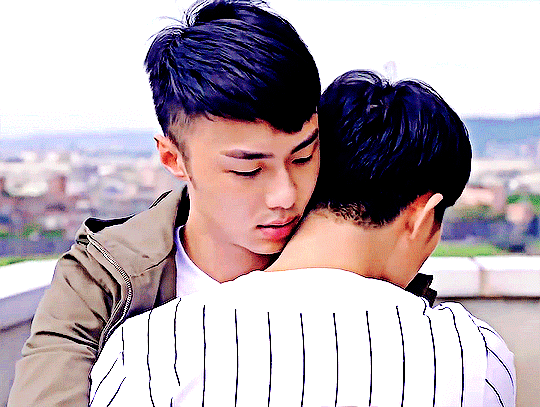


#HIStory2: Crossing the Line#HIStory2: 越界#asianLGBTQdramas#mine edit#Wang Zhen Wen#Nick Yang#Zhang Li Qin#Patrick Shih#Taiwanese Drama#Taiwanese series#Taiwanese BL#BL Drama#BL series#Gabriel makes stuff#Wang Zhen Wen x Zhang Li Qin
12 notes
·
View notes
Text
Timely
(DZZS LNY Mini Prompt Fest Day 12, also on ao3.)
.
"I'm back!~"
Zhen Yan perks up. He was hiding indoors from the heat, perched on a table like a little bird, dangling a ball on a string for Yiguo. He was supposed to practise writing while a-niang was out and a-die was asleep, but he wanted to see how high Yiguo could jump.
But now! Something much better: the voice he's waited to hear forever.
Yan'er throws himself through the front door, Yiguo bouncing behind.
"Qin-bobo!"
Utterly unlike the first time they met, Yan'er adopts a collision course and, laughing, Qin Huaizhang crouches to catch him. He smells like medicine and flowers and pulls away after a second, looking at Yan'er more seriously.
"Did you forget what to call me already?" Qin-bobo asks, chiding.
Yan'er's mouth makes a perfect o. He executes his best formal bow. "Shifu!"
"Hen hao." Shifu's face is warm with approval and Yan'er beams. But--
"What about Shixiong?" he asks, peeking around as if Zhou-shixiong could be hiding. He wants to show him how big Yiguo got, and ask about the treats he promised, and play by the river.
"Zishu stayed behind this time, Yan'er, but you'll see him at Siji Shanzhuang."
Yan'er's disappointment is forgotten before the sullen pout can even form.
"But that's a journey for tomorrow. Come along; I saw your a-niang in town. Let's go in first and get the tea started."
At last! Yan'er takes the offered hand and skips along to tea. He can't wait to go home.
#lny mini prompt fest#day 12#return#ficlet#my writing#my fic#word of honor#shan he ling#wen kexing#zhen yan#qin huaizhang#time to be happy this is a happy story okay#i'm not crying
0 notes
Text
"When will you be back?" A dissatisfied voice says in his head and Feng Xin involuntarily rolls his eyes.
These days, their relationship with Mu Qing is strange, to put it mildly - they fight, cuss, fall into bed in each other's arms, look for their clothes in the bedroom in awkward silence in the morning. Hatefucking and nothing more - Mu Qing has been obsessed with his dick for so long, literally writing poems about it, and he finally gets his hands on it and has a blast. But for the past two weeks, the heavens have been shaking from the general in frustration - Feng Xin is on a mission and the lack of a familiar routine makes Xuan Zhen's demeanor even colder and sharper.
"Are you itching?" Feng Xin chuckles. “Poor thing. So be it, I’ll tell you a secret”. Mu Qing wants his dick? He'll get it. “Technically, Ju Yang is a separate deity. I don’t presume to say exactly how it works, but if desired and with a proper worshipping of the idol, it can be used separately from me.”
Silence hangs in the spiritual array. “Ran away to pray,” the god thinks, returning to his business when a voice interrupts him again
"That's not what I asked"
"What?" Feng Xin raises an eyebrow. Ju Yang can give Mu Qing whatever he wants - a perfect copy of his tremendous masculinity, alive and warm, ready to satisfy the believer. “Have you really missed me?”
“Tsk,” the other answers irritably, not denying. Warmth spreads in Feng Xin's chest. Their arrangement makes him mad for some reason but he tries not to talk about this with Mu Qin. It is useless - accusing him of going to him just for sex is stupid when Mu Qing himself constantly repeats this.
"Holy shit. Mu Qing. You miss me." Feng Xin is sure that his smile can be heard even through a spiritual connection. Triumph and a hope (where did it come from?) overwhelm him.
Mu Qing at the other end abruptly steps out of the array.
Feng Xin chuckles and continues on his duties with a soft smile. He should drop by his temple and buy a souvenir - he has a theory to test.
#mu qing uses him for his dick. and his whole body. and personality.#ju yang being an ultimate sextoy#but it's not ju yang's name he calls in bed isnt it?#tgcf#mu qing#tgcf mu qing#mxtx tgcf#feng xin#fengqing#tgcf feng xin#tgcf headcanon
111 notes
·
View notes
Note
Hi! I read your posts about Su Daji, and I believe one of them were about her being the literal incarnate of the Moon Fox of the 28 mansions.
I was wondering if there's any lore surrounding the 28 mansions, and if there are any incarnates of them other than her
I more specifically wanted to know about the Moonbird of Net, but I wouldn't mind learning about the others!
Well, tiny correction: Su Daji is not the incarnate of the Heart Moon Fox, but Wu Zetian, China's one and only female emperor, is said Lunar Mansion incarnate in Flowers in the Mirror, a Qing dynasty novel.
In another Qing dynasty novel, Shuoyue Quanzhuan (说岳全传), the notoriously corrupt historical figure, Qin Hui's wife, was the Maiden Earth Bat (女土蝠) incarnate: having been killed by the Golden-winged Peng for farting during Buddha's lecture, she would take revenge on his reincarnation, the heroic general Yue Fei.
About the 28 Lunar Mansions themselves: originally, they are kinda like the Chinese equivalent of the 12 zodiac in western astronomy.
Like, think of the sky as a belt, divided into 4 quadrants, each quadrant containing a giant constellation that represents the Divine Beasts of the Four Directions: Azure Dragon(E), White Tiger(W), Vermillion Bird(S), Black Turtle(N).
Each of these giant constellations can then be broken down into 7 smaller stars/star clusters, corresponding to a section of the sky. They are used to mark the position of the moon during a given month, as well as determine the seasons via the sun's location in a given mansion.
Azure Dragon: 角(Jiao)、亢(Kang)、氐(Di)、房(Fang)、心(Xin)、尾(Wei)、箕(Ji)
White Tiger: 奎(Kui)、娄(Lou)、胃(Wei)、昴(Mao)、毕(Bi)、觜(Zi)、参(Shen)
Vermillion Bird: 斗(Dou)、牛(Niu)、女(Nv)、虚(Xu)、危(Wei)、室(Shi)、壁(Bi)
Black Turtle: 井(Jing)、鬼(Gui)、柳(Liu)、星(Xing)、张(Zhang)、翼(Yi)、轸(Zhen)
However, like many things astronomy, they were later appropriated by astrology and used in divinations, by assigning an element/phase and an animal to each of these stars, making them into the "Beast Stars" (禽星) who can faciliate or obstruct each other, with different implications on your best course of action that day.
Now, look back at the list above. Each vertical column is assigned an element, in this order: Wood, Metal, Earth, Sun, Moon, Fire, Water.
So Star Lord Mao of the White Tiger Quadrant would be the "Sun Rooster Star", Star Lord Xin of the Azure Dragon Quadrant would be the "Moon Fox Star", etc.
But wait, there is more! Outside of the Beast Star divination system, traditional Chinese astrology also viewed the starry sky as the Heavenly Emperor's palace, with each constellation representing an area/building/resident of said palace.
Following that line of thought, people in the Tang dynasty came up with a catchy poetic star catalogue, 步天歌("Song of the Sky Pacers"), in which the 28 Lunar Mansions are kinda like managers who watch over their own group of stellar officials.
And the big 4 quadrants they are part of? Well, they are like four departments, each with their own general themes.
These themes aren't absolute; for example, the Azure Dragon Quadrant represents the front gate all the way up to the main palace halls, so they have a lot of stellar officials in charge of chariots, gates and honor guards, but also...grain baskets.
As for the Moonbird of Net, a.k.a. Bi Yuewu the Moon Crow Star: well, ain't this the damnest coincidence, I actually had an old OC concept based on this very Lunar Mansion!
Bi the Moon Crow
In traditional Chinese astrology, the Bi star was the god of rain, the "Master Rain"(雨师) to the "Duke Wind"(风伯) of Ji star: it was believed that whenever the moon came near this star, there would be a huge storm.
Since the Grand Compendium of the Three Religions' Deities stated that "Master Rain" was actually a one-legged divine bird called Shang Yang, who first appeared in 孔子家语 as this little creature who'd dance before every downpour like a goofy weather forecast guy, I drew his Stellar Beast form as a one-legged crow.
(OC-specific stuff below, not mythos canon)
He is very skilled at creating cloud formations, to the point where he got "borrowed" by the Wind and Thunder Bureau more than some of the Water-aligned Lunar Mansions.
After the Havoc, he has also become the new guy in charge of the Peach Garden(one of the constellations falling under Bi's section of the sky is Tianyuan, the Celestial Garden).
Anyways, traditional Chinese astrology is super fascinating, and I've only gone into a tiny fraction of it here. Hope it helps, though!
45 notes
·
View notes
Text
In support of Hot General Summer (tm)
I realized that my recent poll not only lacked visual support but also left out a lot of my fave cdrama generals. So, in support of my Hot General Summer agenda:
Xiao Qi, Rebel Princess

Wei Wu Ji, Sound of the Desert
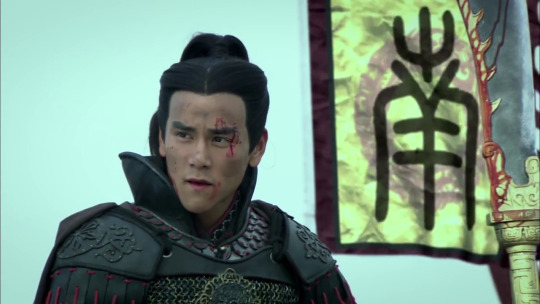
Ling Buyi, Love Like the Galaxy

Zhousheng Chen, One and Only

Zhao Yun, God of War Zhao Yun
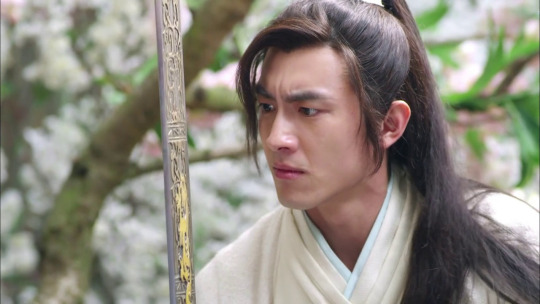
Sima Yi, Secret of Three Kingdoms
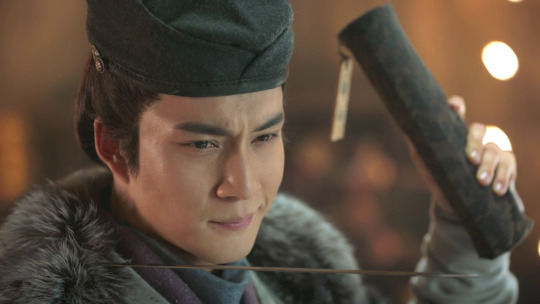
Han De Rang, The Legend of Xiao Chuo

Zhan Beiye, Legend of Fuyao
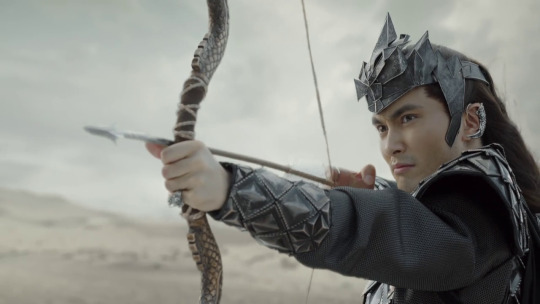
Gao Chang Gong, Lan Ling Wang

Xiang Yu, Story of Han Dynasty

Cao Pi, The Advisors’ Alliance

Meng Tiang Fang, Ancient Terracotta War Situation
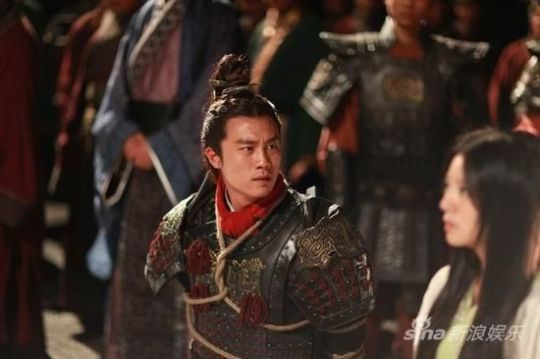
Chu Bei Jie, General and I
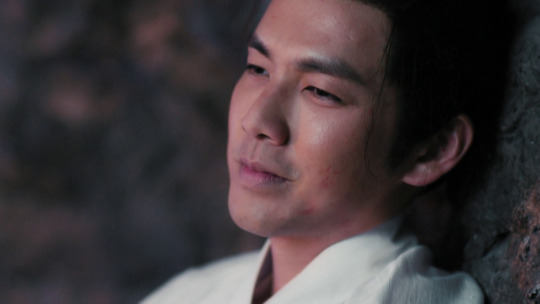
Zhu Zan, Jin Jiu Ling

Wolfie, The Wolf
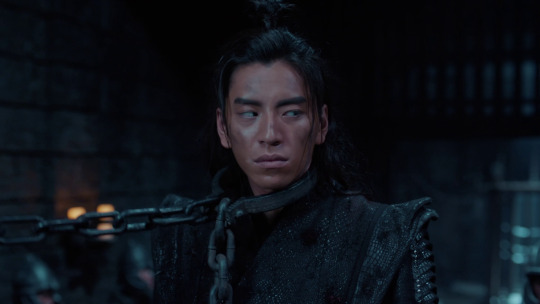
Xiang Yu, Legend of Chu and Han

Cheng Yi, The Promise of Chang’an

Liu Xiu, Singing All Along
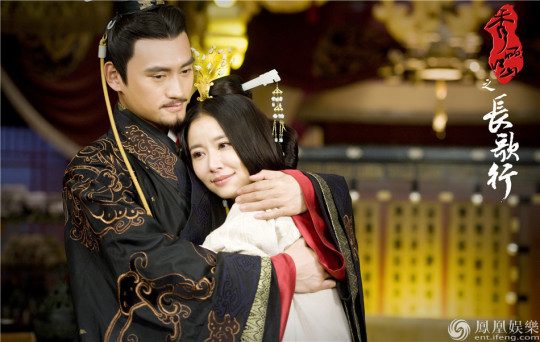
Huo Xin, Painted Skin the Resurrection
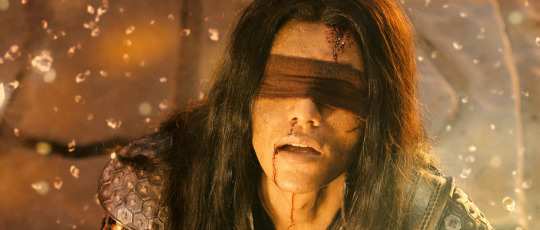
Meng Qi You, Glamorous Imperial Concubine

Yang Bros, The Young Warriors

Weng Gui, Princess Jieyou

Xiao Ping Zhang, Nirvana in Fire 2
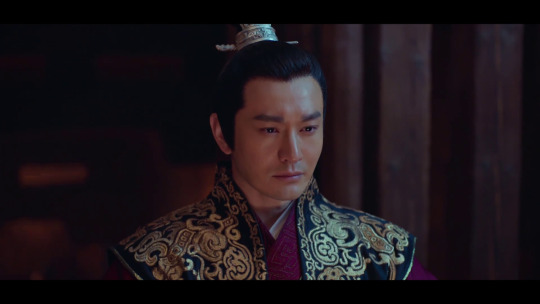
Pei Zhao, Maiden Holmes
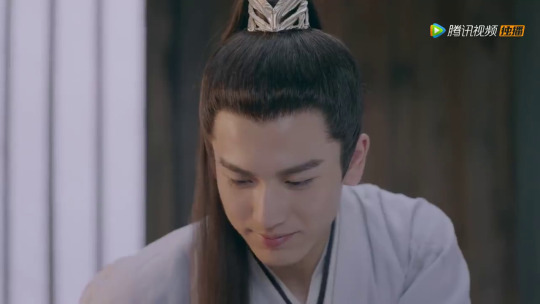
Ji Ye, Novoland Eagle Flag
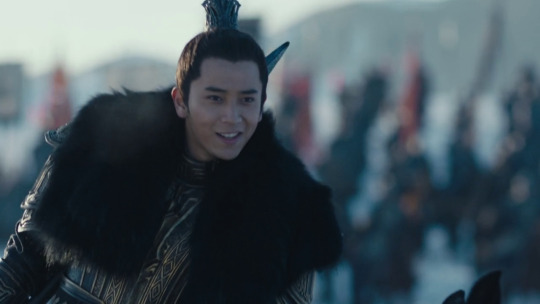
Zhu Qi Zhen, Imperial Doctress (it’s a reach he’s an emperor. But he leads his force in battle and I wanted Wallace Huo there so...)

Yuan Ling, Lost Love in Times

Yi Xiao Chuan, The Myth

Gu Tingye, The Story of Ming Lan
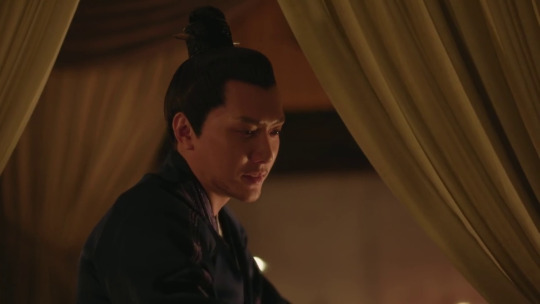
Lu Bu, Three Kingdoms 2010
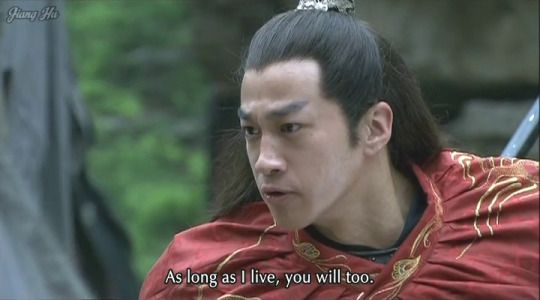
Xu Lingyi, The Sword and the Brocade
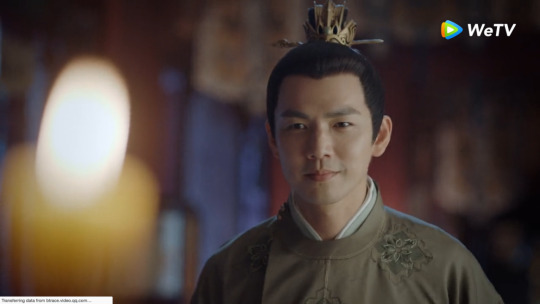
Yue Fei, Patriot Yue Fei
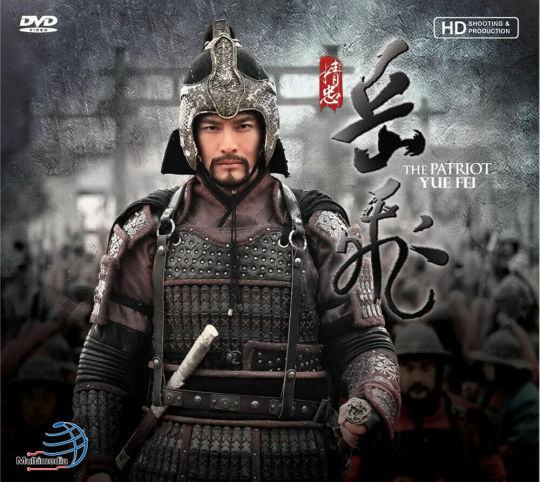
Xiang Yu, The Myth

Ping Zhang, Nirvana in Fire 2
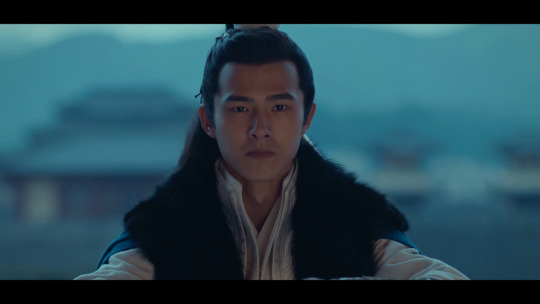
Guo Jing, Legend of Condor Heroes 2008

Xiang Yu, The Legend of Qin
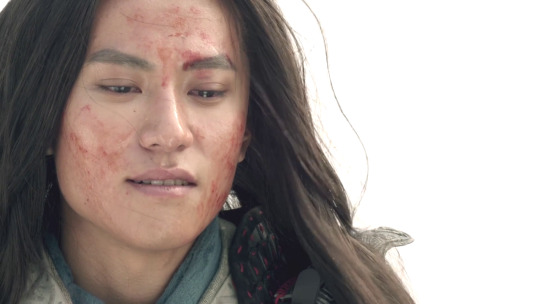
#cdrama#the myth#the legend of qin#nirvana in fire 2#three kingdoms 2010#the story of ming lan#the sword and the brocade#singing all along#patriot yue fei#princess jieyou#general and i#legend of condor heroes#the story of han dynasty#the legend of xiao chuo#novoland eagle flag#ancient terracotta war situation#fight and love with a terracotta warrior#one and only#lan ling wang#legend of chu and han#the wolf#the promise of chang'an#god of war zhao yun#painted skin resurrection#lost love in times#the imperial doctress#glamorous imperial concubine#rebel princess#monarch industry#maiden holmes
152 notes
·
View notes
Text


Li Qin, DD, Wang Yang
DD's new TV series coming in 2024. English title still unclear.
Synopsis (from MyDramaList):
Set in 1928, it tells the story of Wei Ruo Lai and his determination to courageously pursue his strong aspirations in serving his country. He regarded Shen Tu Nan, a senior adviser, as his mentor when he was a low-level employee at a financial institution. Through the excellence of his memory and data analysis ability, Wei Ruo Lai has been favored by Shen Tu Nan. However, his line of work made him witness the blatant corruption and darkness in the financial field unleashed by the Kuomintang with his own eyes.
Under the influence of Shen Tu Nan's younger sister, Shen Jin Zhen who is a member of the Communist Party, Wei Ruo Lai gradually established his communist beliefs and eventually parted ways with Shen Tu Nan. This led him to face several encounters with the Kuomintang, including that of Shen Tu Nan whom he launched a fierce duel with. After going through the baptism of blood and fire and along his undying commitment, Wei Ruo Lai grew to be an outstanding and loyal fighter on the economic front of the Communist Party.
79 notes
·
View notes
Text
Review of Lost You Forever S1 《长相思》
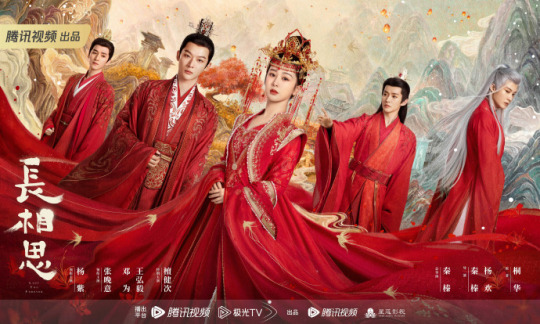
4.4/5
Romance versus love, fantasy, xianxia, drama, politics
No better place than here to admit that I initially thought this would be a trashy especially because I have very little patience for romance dramas. But I have to swallow my words now because I was wrong.
Tong Hua is the original author and also scriptwriter for this drama; this lady kept a very close eye on the adaptation throughout. The show was directed by female director Qin Zhen, and with both of them in the car it's no wonder this drama feels different than the romances shot by male directors.
The Plot: The plot is romance, literally, filled with romantic tropes and whatnot; but the not-so-subtle meta is that it's also a meditation on love and romance, through characters and plot developments that debate heartily on the topic. The plot is also about the roles of men, women and "love" in the traditional, patriarchal Chinese society that is the setting. This is overall an intelligent story that endeavors to go beyond just fulfilling romantic notions.
Xiao Yao: Leading lady Xiao Yao is a 300+ year old princess, sharp, resourceful and wiser because of her traumas. In her life, she has been subject to torture and assassination, would rather take a reckless shot at the great unknown than wait away in the deathliness of peace, and has an intimate understanding of men, women and the things in-between, having also lived a good chunk of her life as a man.
Xiao Yao's greatest love is freedom. She loves freedom so much that she would rather have both her legs be broken (ironically) than reconcile with her dearly beloved brother and father — because she knew that meant walking headfirst into the gilded bird cage of stature and politics.
She values freedom of the mind and spirit if she can't have freedom of will and being, and only demands that her husband will have her as his one and only wife. It's a very tall ask in this game of politics. For comparison, her father pulled it off at the cost of devastating war.
Xiao Yao believes in love, but she doesn't believe in romance. She gives and receives love freely, and even on occasion unconditionally — but having learnt that emotional damage is far worse than physical ones, she guards her heart carefully to spare herself from the kind of pain that romantic love will cause.
Ultimately however, Xiao Yao knows that even that stance is one of self-denial.
Cang Xuan: Xiao Yao's brother (or cousin, if you wanna be technical). Interestingly, he's not popular in Chinese and International fandoms for the same reason — exactly like Xiao Yao, he's rational to the point that it's a double-edged blade, and he had unknowingly, intentionally, caused Xiao Yao to suffer immense pain in the beginning.
I wouldn't so much as blame Cang Xuan for that as I would consider it to be a visible metaphor of the kind of self-sabotage that Cang Xuan and Xiao Yao do to themselves when they only consider love for its utility.
Because this is a show about multiple love interests, the argument of "but he was first" works best in Cang Xuan's favor. The two of them are childhood best friends and swore an oath on the deaths of their family members to never be without the other.
With an emotional baggage shaped like Cang Xuan, you miss the point if you only fixate on the boundaries that he can operate in under "romance". He notices his own feelings for her exceed that of brother and sister, but as clinical as he is with romance, marriages and other women, he suspects that the relationship he has with Xiao Yao by birthright is the truest one in the sense of "love".
Does it have to entail her hand in marriage to give or receive her love? Will he not always be by her side through thick and thin, even after her "romantic" matches disappoint her time and again?
Will he still feel so self-assured even after Xiao Yao embarks on her newly married life with her future husband?
Xiao Yao loves him enough to give up her greatest love of freedom of him. She knows that Cang Xuan will always be there for her, and deeply understands that this status quo is the best way to maintain the longevity of their love for each other.
Tushan Jing/Ye Shiqi: Shiqi is the purest form of romantic love + pure mutual companionship that Xiao Yao has ever experienced, full stop and past tense. At the very beginning, Shiqi was just a servant and she was simply his savior. If he could live life exactly as he wanted, he would live it as a love-blind idiot and doting malewife, penniless, besotted and happy.
I can't quite say that he loved Xiao Yao irrespective of her gender, given that he guesses rather quickly as to her true gender.
Regardless, due to his upbringing and trauma, Shiqi is (initially) generous with his heart and kindness, not minding if he's being taken advantaged of, or shamelessly used for money — his love language is acts of service, and he can't think of anyone he'll rather love than the equally kind-hearted stranger who saved his life when they didn't have to.
However, Shiqi is indeed a dream, and he is too good to exist for real. His full identity is Tushan Jing, whose emotional baggage is as large as his soft heart. On one hand, Jing cannot bring himself to sever toxic family members even when it sabotages himself and his relationship with Xiao Yao; on the other hand, both Xiao Yao and him are dependent on his full identity as Tushan Jing to advance their respective interests of: supporting Cang Xuan's bid for the throne; and marrying Princess Jiuyao with all the socio-political razzmatazz befitting her stature.
Because of this, he's guilty of betraying Xiao Yao's heart severely, time and again. The fox does in fact bite.
One of the most scathing commentary I saw about Jing in the Chinese fandom was that Xiang Liu spent 37 years saving Xiao Yao's life, while Jing spent the same amount of time lying down (in a coma).
I'm not sure if or how this metaphor will bite back later in S2, but Xiao Yao's favorite childhood toy/Chekov's gun is a nine-tailed fox tail. Her evil torturer who knew the truth about her birthright is also a nine-tailed fox. Tushan Jing himself is the descendent of nine-tailed fox.
Fangfeng Bei/Xiang Liu: I almost wanted to write Fangfeng Bei separately given that all the other guys (except Cang Xuan I think?) all said something remarkable: that they think Fang Fengbei is the best man for Xiao Yao. Even I thought that was cheap dialogue thrown in to artificially lend weight to "Team Bei", and I am on Team Bae.
I eventually realized that they said that because they are all clever people, and know that Fangfeng Bei epitomizes freedom (the character for "wind" is in his name), and also that while they might compete for her heart, freedom is what Xiao Yao yearns most painfully after.
Probably this is why Xiang Liu is allergic to saying goodbyes, preferring instead to come and go like the wind does — silently.
Interestingly, Fangfeng Bei also has another recurring metaphor, this one vis-à-vis our good cousin Cang Xuan. Cang Xuan's most tried and trusted strategy of handling whatever life throws at him is to "not hope", and thus not have to bear the brunt of disappointment.
Fangfeng Bei is obsessed with hope. He says hope is the lie that keeps people going. He is the de facto commander of an army that's been defeated for centuries. In the underground fighting ring he mocks Xiao Yao for her shabby encouragement attempt, but is the one to give the fighter real hope by sharing about his own real survival story. Four decades later, he pretends not to care when the fighter finally earns his freedom, but is pleased to see Xiao Yao gift the fighter priceless resources. When he was still pretending to be a different person than Xiang Liu he taunts her, over and over again, "Who do you hope for me to be?" and "What do you hope for me to say?"
Xiang Liu is massively popular in the Chinese fandom as the OTP for Xiao Yao (contrasted against Jing's popularity on tumblr). An interesting tidbit is that the drama team made character social medial accounts for them on Weibo, and these are their follower counts at this point of time in writing:
Xiao Yao: 485k
Xiang Liu: 461k
Cang Xuan: 384k
Tushan Jing: 378k
Countless other literature have been written, and countless fights have been had over how much Xiang Liu has done for Xiao Yao in the name of true love. I will say that in contrast to Jing, who desperately attempts to blur the boundary between himself and his idealized self (i.e. Ye Shiqi); Xiang Liu endorses the idea of Fang Fengbei within limits, and personally cuts off Xiao Yao's wishful daydreams before they can gain any kind of traction. This is one part (of many) where the two of them are similar, because transacting within the confines of terms and conditions is what makes them comfortable.
He can't forgive her for breaching his lines where he drew them. She said "If I'd been the one to save you, I'll let you be Fangfeng Bei forever. Free and without burdens or worries."
She can't forgive him either for breaching her lines where she drew them. She told him "You're not the kind of man that any woman should dream of". She had already dreamt of him a long long time ago.
Let's just conclude for now that Xiang Liu has incredible finesse at snaking back and forth across enemy lines.
My Guess as to What "Lost You Forever" means for S2: I've always wondered why so many Chinese drama claim variants of "love" and "longing" in their English translated titles when the Chinese words are so much more vividly metaphorical about other things (I'm talking about "A Journey To Love" for 一念关山 and "Love And Redemption" for 琉璃).
That being said, "Lost You Forever" is a pretty straightforward and semi-direct translation of “长相思". The translation of the original novel title is actually much closer, "Miss You Forever". The drama title dramatizes it.
/**SPOILER WARNING/**
Xiang Liu dies, and Xiao Yao ends up with Tushan Jing.
Pretty much all the Chinese fans know this. They're familiar with the novel (and on-set leaks) and know that the drama will be faithful. The actors have also divulged this while doing press and promotions since they shot the entire story in one go. Xiao Yao's actress Yang Zi and Xiang Liu's actor Tan Jianci both tend to get teary-eyed or choked up whenever they address Xiang Liu's fate. Yang Zi describes her story with Tushan Jing as "the official pairing", and her relationship with Xiang Liu as "意难平", which is hard to translate because it's three little words that encompasses a broad and vague feeling. It means any or all of the following:
The one that got away (see: the Katy Perry song)
The one I can't ever let go of (see: the Pink song "Who Knew")
The one that I wasn't willing to lose (see: Li Xiangyi in Mysterious Lotus Casebook)
Some tragedies will imprint upon the heart more deeply than some loves ever will.
The titular characters are Xiao Yao and Xiang Liu. They made indelible impacts on each other's souls and are destined to lose each other "forever".
21 notes
·
View notes
Photo

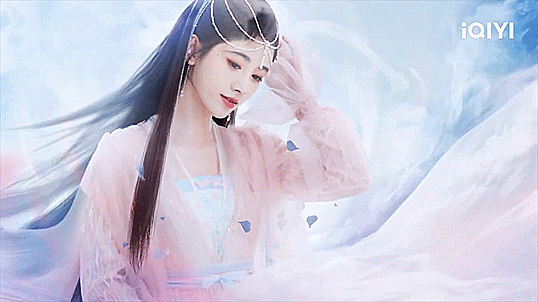
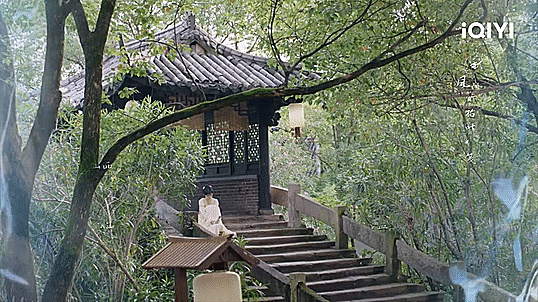
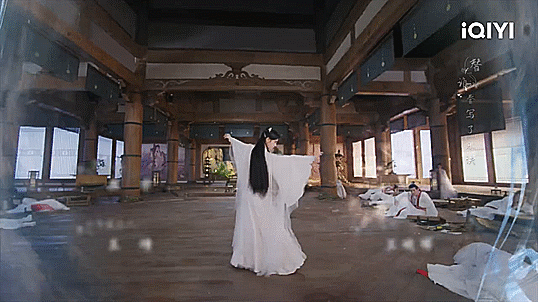
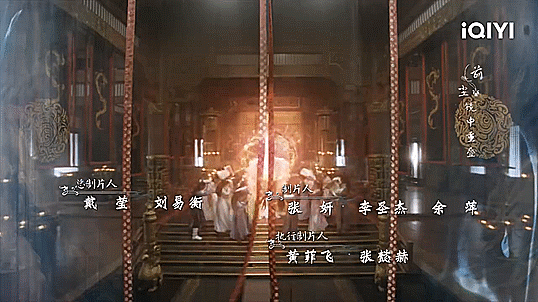
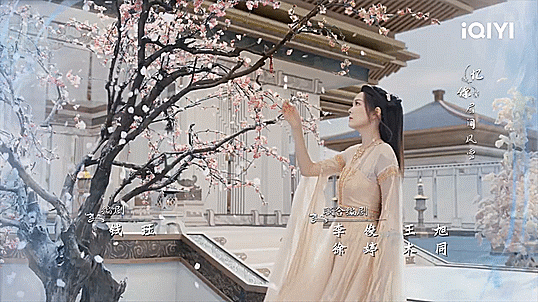

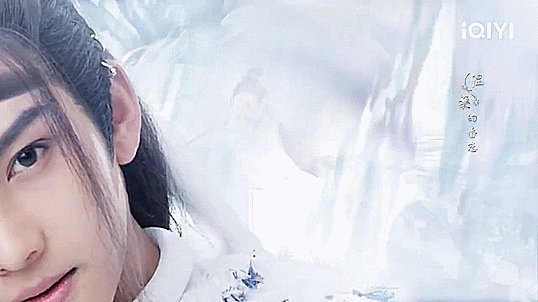
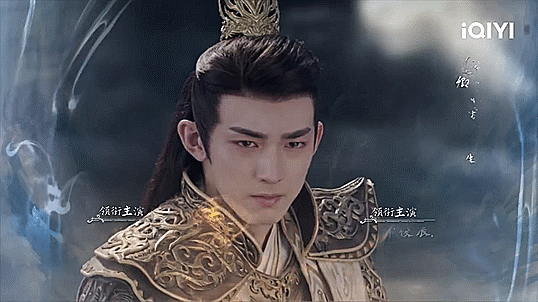

Cdrama: Beauty of Resilience (2023)
Gifs of Intro of cdrama “Beauty of Resilience”
【FULL】 Beauty of Resilience EP01: Wei Zhi Participates in the Identification Selection | 花戎 | iQIYI
Watch this video on Youtube: https://www.youtube.com/watch?v=a2dFbeKdOAY

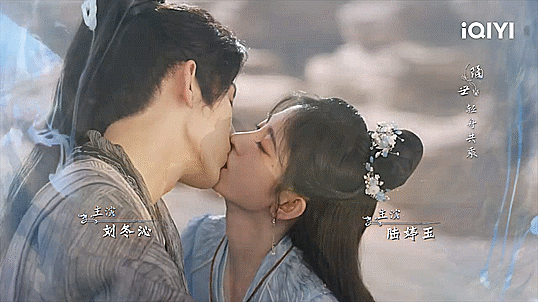

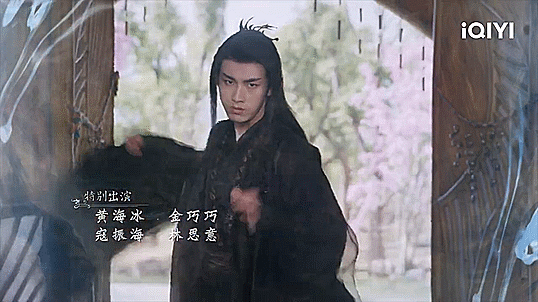
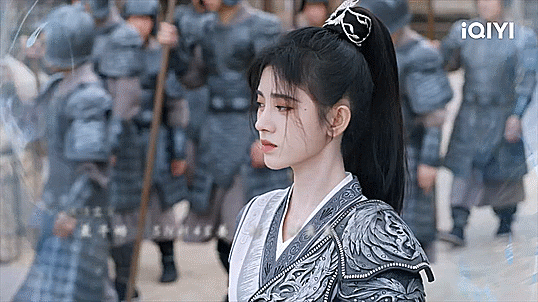

#Beauty of Resilience#花戎#Hua Rong#Floral Armor#Wu Chang Sheng#误长生#花嫆#iQIYI#2023#cdrama#chinese drama#youtube#shorts#short video#Ju Jing Yi#Guo Jun Chen#Liu Dong Qin#Huang Hai Bing#Jin Qiao Qiao#Kou Zhen Hai#Zhang Zhi Hao#Song Xin Ran#Nie Zi Hao#1st episode#episode 1
25 notes
·
View notes
Photo



Legend of Zhen Huan :: Zhao Qin as Fuca Yixin
#legend of zhen huan#cdrama#perioddramaedit#cdramanet#cdramaedit#gifshistorical#gzh#empresses in the palace#qing dynasty#甄嬛传#hairstyles#zhhair#costumesource#cdramagifs#asiandramanet#perioddramasource#onlyperioddramas#chinese drama
68 notes
·
View notes
Text
Thousand Autumns Audio Drama Ending Song 2 - Cao Mu Bu Xiu Lyrics & Translation
Thousand Autumns Audio Drama Season 2 Ending Theme Song
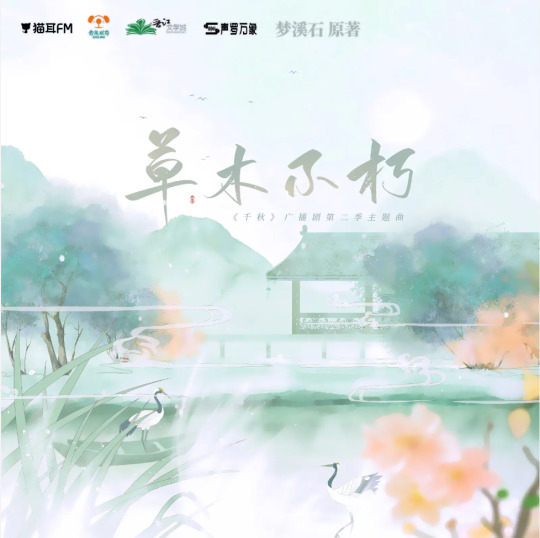
Production Team:
Produced by: Sheng Luo Wan Xiang Studio (声罗万象工作室)
Producer: Liao Liao (聊聊)
Lyricist: Zhen Zhu (镇朱)
Composer: Chen Yiming (陈亦洺)
Performed by: Chen Yiming (陈亦洺)
Arranger: Li Dabai (李大白)
Harmony writing/mixing: Cha Xue (茶雪)
Poster: Qin Mo (秦墨)
Inscription: Qiongjiu (穹九)
English Translation: Freiya, credit reference to TreasureChestSubs
----------------------------------------------------------------------------
The Grass and Trees Remain Eternal
Lyrics:
wǒ jièguò yī chuán mèng
我借过一船梦
suí mèng tiāndì xié yóu
随梦天地偕游
chéng wù zhī jí yǐ yǎn kāi jiǔzhōu
乘物之极以眼开九州
lěng yuè tài shòu biàn yǎng yú yī xiù
冷月太瘦便养于衣袖
mèng jiě lǎn yīgè wǒ dú xiàxíng zhōu
梦解缆一个我 独下行舟
tì zuórì shàonián
替昨日少年
zhē lái lù báihóng
遮来路白虹
bù wèn chūnshān jǐ dié xiàn yún zhōng
不问春山几叠陷云中
yǒuxīn yú wǒ jiàn shàng huà língluò
有心于我剑上画零落
yǔ nǐ xiāng zhuàng huà wàn qiān xīng fēng
与你相撞 化万千腥风
tòng xǐng hòu jìxù yuǎn zǒu
痛醒后继续远走
bù wèn sìhǎi quàn wǒ hé shí xiū
不问四海劝我何时休
cháng'ān lóu shàng yōng rénmíng liú
长安楼上庸人名留
rúcǐ dàdào wúyòng jiāng fēngyuè kè sòng
如此大道无用 将风月刻诵
wǒ jièguò yībēi jiǔ
我借过一杯酒
mǎn zhēn gǔlǎo xīngdǒu
满斟古老星斗
nǎge xiào céng ràng wǒ rù qíng zhǒng
哪个笑曾让我入情种
huò shì shānchuān dōu lái cǐ tíngliú
或是山川都来此停留
shì nǐ tà yè érguò zèng wǒ dāofēng
是你踏夜而过 赠我刀锋
huàn chī zhě jiěmèng
换痴者解梦
shēngsǐ qīng fèngsòng
生死轻奉送
bù wèn chūnshān jǐ dié xiàn yún zhōng
不问春山几叠陷云中
yǒuxīn yú wǒ jiàn shàng huà língluò
有心于我剑上画零落
yǔ nǐ xiāng zhuàng huà wàn qiān xīng fēng
与你相撞 化万千腥风
tòng xǐng hòu jìxù yuǎn zǒu
痛醒后继续远走
bù wèn sìhǎi quàn wǒ hé shí xiū
不问四海劝我何时休
cháng'ān lóu shàng yōng rénmíng liú
长安楼上庸人名留
rúcǐ dàdào wúyòng jiāng fēngyuè kè sòng
如此大道无用 将风月刻诵
bù wèn chūnshān jǐ dié xiàn yún zhōng
不问春山几叠陷云中
yǒuxīn yú wǒ jiàn shàng huà língluò
有心于我剑上画零落
yǔ nǐ xiāng zhuàng huà wàn qiān xīng fēng
与你相撞 化万千腥风
tòng xǐng hòu jìxù yuǎn zǒu
痛醒后继续远走
bù wèn tā nián tóng chén wàng yānbō
不问他年同尘忘烟波
duōshǎo gùshì zhuǎnshēn qiānqiū
多少故事转身千秋
xìng dé shì wài xū zhōu huì piāobó jiùyǒu
幸得世外虚舟 会漂泊旧友
tā xìn shānhé zhǎng yǒu
他信山河长有
cǎomù yì bùxiǔ
草木亦不朽
---------------------------------
English Translation
Once I borrowed a boatful of dreams,
and journeyed through the universe together with these dreams
Taking this opportunity with my own eyes to see the nine states[1]
Keeping the thin, cold moon within my sleeves.
The dream released one of me to descend the boat alone,
and helped the young man of yesterday
by covering up the way ahead in white moon light[2]
Do not inquire how many layers of spring mountains were wrapped in the clouds,[3]
If the will of my sword to paint the scattered pieces
turns into a thousand gusts of wind when clashing with you together
After being awakened from the pain, I'll continue to travel far away.
Do not ask the four seas to advise me when to rest,[4]
The mediocre man carves his name on the towers of Chang'an.
Thus the Great Way is but a worthless thoroughfare to carve the wind and the moon.[5]
Once I borrowed a cup of wine,
With the ancient stars, toasted a full cup.
Which smile has made me fall in love,
or made the mountains and rivers stay here?
You were the one who strolled through the night and handed me a blade,
For the sake of those with foolish dreams.
Life and death, gifted gently by you
Do not inquire how many layers of spring mountains were wrapped in the clouds,
If the will of my sword to paint the scattered pieces
turns into a thousand gusts of wind when clashing with you together
After being awakened from the pain, I'll continue to travel far away.
Do not ask the four seas to advise me when to rest
The mediocre man carves his name on the towers of Chang'an.
Thus the Great Way is but a worthless thoroughfare to carve the wind and the moon.
Do not ask him to forget the dust and the smoke in those years,
How many stories have been told in a thousand autumns?
Fortunate to drift with old friends in the ethereal boat.
He believes that the mountains and rivers will last forever,[6]
And the grass and trees will remain there eternally.[7]
--------------------------------------
*Translator's Notes:
[1]This line can also mean ‘riding to the extreme’ to see the nine states. Nine states also refer to the nine provinces in China, also part of the four seas.
[2]This line literally said “white rainbow”, but since there’s a cold moon mentioned before, I think this is actually a moonlight
[3]This line literally said ‘do not inquire’, but can also mean ‘no matter’.
[4]Four seas in this song mean the world/everywhere/all around the world
[5]For me personally I think these two lines described Yan Wushi. The whole reff described how passing through many outcomes and challenges, he had the idea of how human nature is evil, until he stumbled upon a pure mountain, a strong-stanced person (Shen Qiao) in which he began the change of his thinking (to the point of realizing how he was blinded and has been mistaken for a whole long while).
[6]The lyrics really is written as ‘he’
[7]In this line it was written literally as immortal/eternal
**The whole song is very complicated in my opinion, and some lines doesn’t really make sense if translated literally, hence I’m also open to suggestions/corrections.
--------------------------------
Navigation
Thousand Autumns Audio Drama Season 1 Ending Song: Wo Du San Qian Bian Ni by Xiao Hun
Translation Masterlist
#千秋#qianqiu#thousand autumns#yan wushi#shen qiao#yanshen#meng xi shi#text post#song lyrics#english translation#lyrics translation#audio drama#chinese novel
9 notes
·
View notes
Photo






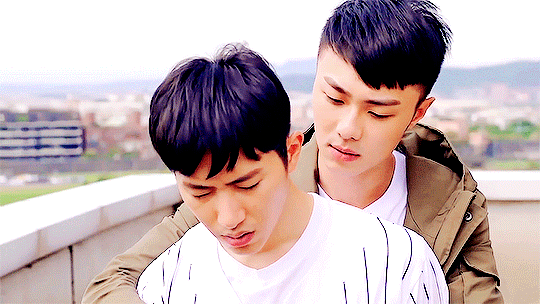

#HIStory2: 越界#HIStory2: Crossing the Line#asianLGBTQdramas#mine edit#Wang Zhen Wen#Nick Yang#Zhang Li Qin#Patrick Shih#Taiwanese Drama#Taiwanese series#Taiwanese BL#BL Drama#BL series#Gabriel makes stuff#Wang Zhen Wen x Zhang Li Qin
11 notes
·
View notes
Note
Why were Cao Zhen and Cao Xiu permitted to retain their military commands and armies after Cao Pi took over and banished his other brothers like Cao Zhang to estates? Weren't Zhen and Xiu also usually treated as Pi's brothers?
It's important to note that Cao Zhen and Cao Xiu were not adopted by Cao Cao. They were not legally his sons. That's significant.
Adoption was a tricky subject in Han culture. People had responsibilities to their parents that extended after death; obligations to their ancestors that formed a major cultural component of their lives. Cao Zhen and Cao Xiu were needed to maintain their own family lines.
Adoption wasn't something to be done casually, or for convenience, or even for affection. It was really only done when someone needed to maintain their own lineage. In such a case it was normal to adopt a junior relative (or to have one assigned to you posthumously) as an heir. If you already had multiple sons, you wouldn't adopt others. Had Cao Zhen or Cao Xiu died unexpectedly, Cao Cao might have instead assigned one of his own sons or grandsons to be their heirs. For example we see, when Cao Shuang's branch was executed, a cousin posthumously adopted to be his son and continue Cao Zhen's lineage, out of respect for his contributions to the state.
Further, by not adopting these men as his sons but merely treating them as such, he ensured that Cao Pi would have reliable, loyal friends to call upon when he came to rule. If they were his brothers they would have to be sent away. As more distant relatives they had no legitimate claim to any sort of inheritance from the main branch and could not plausibly be rivals to the main family.
For all these reasons, Cao Cao did not legally adopt them. He took them into his home and treated them like his sons, like He Yan and Qin Lang, but they never legally had that status. They occupied a place similar to that of men like Xiahou Dun and Cao Ren in the previous generation.
8 notes
·
View notes
Text
Wang Chuan Feng Hua Lu (忘川风华录) Masterpost

Wang Chuan Feng Hua Lu (忘川风华录) is a Vocal synth (Vocaloid and SynthV) music project. It consists of songs themed around different figures throughout Chinese history. The project is a collaboration between different artists and creatives, with music and videos featuring prominent traditional Chinese elements. The project's title translates to "The Records of Magnificence of the Wangchuan" - In Chinese mythology, "Wangchuan" (or River of Forgetting) is a river in the Underworld that can rid one of their past life's memories, similar to the river Lethe.
A mobile game adaptation has also been developed by NetEast. Unfortunately, I haven't played it so I can't give much insight on it. However, I assume that its premise is similar to that of the idea behind the project as a whole: all these historical figures meeting each other in the Underworld after they died. Maybe.
You can find all the songs on Bilibili. The official Weibo can be found here. The game's website, which includes all characters appearing so far in the game, can be found here, and its Weibo can be found here.
(If you prefer YouTube, I've also put together a handy playlist. Please know that most of these videos are reposts though, so please watch the original Bilibili MVs if you can!)
This blog is where I will be posting everything I feel like I need to say about the songs in this project. A lot of it is lifted from my Twitter account but will be in much more detail. Note that I probably won't touch collab songs, or songs that don't focus solely on the project's own characters.
Disclaimer: I do not speak Chinese, nor am I an expert on Chinese history. Therefore, I cannot reliably translate the lyrics to these songs, nor my words should be taken as gospel. I am merely a nerd gushing about my hyperfixation.
Playlist
多情岸 【Duo Qing An】 ➼ B link
洛阳怀 【Luo Yang Huai】 ➼ B link
易水诀 【Yi Shui Jue】 ➼ B link
山河令 【Shan He Ling】 ➼ B link
簪花人间 【Zhan Hua Ren Jian】 ➼ B link
栖凰 【Qi Huang】 ➼ B link
心上秋 【Xin Shang Qiu】 ➼ B link
祖龙吟 【Zu Long Yin】 ➼ B link
如见青山 【Ru Jian Qing Shan】 ➼ B link
竹林间 【Zhu Lin Jian】 ➼ B link
天下局 【Tian Xia Ju】 ➼ B link
青鸟衔风 【Qing Niao Xian Feng】 ➼ B link
木兰行 【Mu Lan Xing】 ➼ B link
好字唯之 【Hao Zi Wei Zhi】 ➼ B link
不可道 【Bu Ke Dao】 ➼ B link
水叙湖风 【Shui Xu Hu Feng】 (collab) ➼ B link
是非 【Shi Fei】 ➼ B link
风起甘露 【Feng Qi Gan Lu】 (collab) ➼ B link
谓剑 【Wei Jian】 ➼ B link
万象霜天 【Wan Xiang Shuang Tian】 (New Year event song) ➼ B link
千秋梦 【Qian Qiu Meng】 ➼ B link
易安难安 【Yi An Nan An】 ➼ B link
惊鹊 【Jing Que】 ➼ B link
高歌破阵 【Gao Ge Po Zhen】 (collab) ➼ B link
不赴 【Bu Fu】 ➼ B link
西行 【Xi Xing】 ➼ B link
大航海家 【Da Hang Hai Jia】 ➼ B link
牡丹乱 【Mu Dan Luan】 (collab) ➼ B link
倾国 【Qing Guo】 (collab) ➼ B link
相虎 【Xiang Hu】 ➼ B link
补天裂 【Bu Tian Lie】 ➼ B link
此期盈期 【Ci Qi Ying Qi】 (1st anniversary song) ➼ B link
破云来 【Po Yun Lai】 ➼ B link
归钓吟 【Gui Diao Yin】 ➼ B link
始见千秋 【Shi Jian Qian Qiu】 ➼ B link
临川浮梦 【Lin Chuan Fu Meng】 ➼ B link
将军行 【Jiang Jun Xing】 ➼ B link
妄语人间 【Wang Yu Ren Jian】 ➼ B link
数风流 【Shu Feng Liu】 (2nd anniversary song) ➼ B link
问剑春秋 【Wen Jian Chun Qiu】 ➼ B link
起战令 【Qi Zhan Ling】 ➼ B link
人间应又雪 【Ren Jian Ying You Xue】 ➼ B link
旷古回响 【Kuang Gu Hui Xiang】 ➼ B link
墨隐侠声 【Mo Yin Xia Sheng】 ➼ B link
桃源故人 【Tao Yuan Gu Ren】 (3rd anniversary song) ➼ B link
*Note: The anniversary songs are probably for the game's anniversaries, as the project itself is more than 5 years old.
Albums
Vol 1: 溯洄 【Su Hui】
Includes character songs from Duo Qing An to Zhu Lin Jian. Features human vocals.
Vol 2: 踏浪 【Ta Lang】
Includes character songs from Tian Xia Ju to Jing Que.
Vol 3: 数风流 【Shu Feng Liu】
Includes character songs from Bu Fu to Wang Yu Ren Jian, an unreleased song titled 燕双归 【Yan Shuang Gui】, and the two anniversary songs.
Visual character guide:
PRE-QIN | QIN | WESTERN CHU | HAN | THREE KINGDOMS | JIN | NORTH & SOUTHERN DYNASTIES | TANG | FIVE DYNASTIES & TEN KINGDOMS | SONG | YUAN | MING | QING | DREAM
#忘川风华录#wang chuan feng hua lu#wcfhl#chinese music#vocasynth#vocaloid#synthv#vocaloid project#synth v project#synthesizer v#vocal synths#long post#this is the culmination of a 3 year brainrot#i will try my best
8 notes
·
View notes
Text
Tilling the fields, QMYS, Section 1
The Qimin yaoshu齊民要術 (“Essential Techniques for the Common People) by Jia Sixie (fl. c. 540), is the oldest Chinese agricultural treatise to survive in its entirety. Jia Sixie served as a mid-level official of Eastern Wei,as such the focus is on the dryland farming practices of his home region in modern Shandong rather than the wet rice agriculture of Southern China. The book itself mixes Jia Sixie's own advise and descriptions with quotations from earlier works, many of which are now lost. The QMYS is therefore not just an important source for the author's own times, but for the agricultural writings and practices of the preceding centuries.
Section 1 covers the different aspects of tilling the fields in preparation for cultivation, and contains advise for how to clear new fields, ploughing, harrowing, different soil types, and so on.
(To go straight to the translation, jump to "Section 1, Tilling the Fields")
[Translator's preface]
[The QMYS is not illustrated, but texts of this nature really should come with some visual aides. I have therefore included here some drawings and pictures from later eras. All images from Wikipedia.
[Farming tools]
Han era scholars agreed that China's first plough had been a tool called leisi耒耜, but lacked a clear of concept of how it actually looked like. Later authors simply repeated their statements. The drawing below from Wang Zhen's (1271-1333) Nongshu is therefore at best a reconstruction from literary evidence.
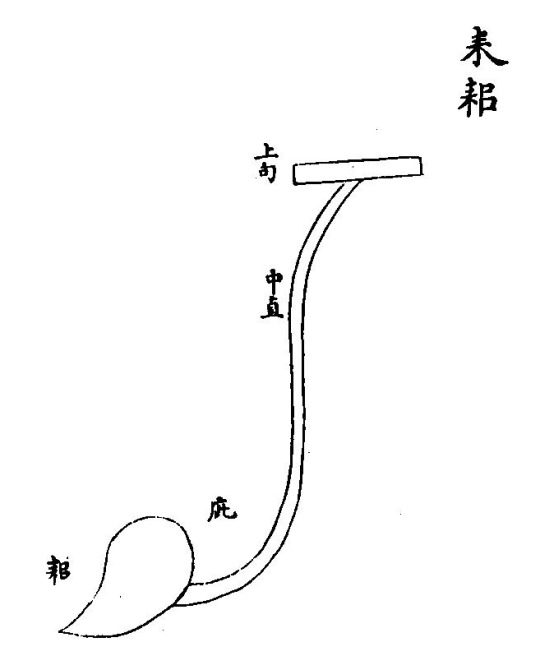
(Leisi耒耜, from Wang Zhen's Nongshu)
The main plough was instead the ox-pulled li犂 frame-plough.

(Li犂, from Wang Zhen's Nongshu)
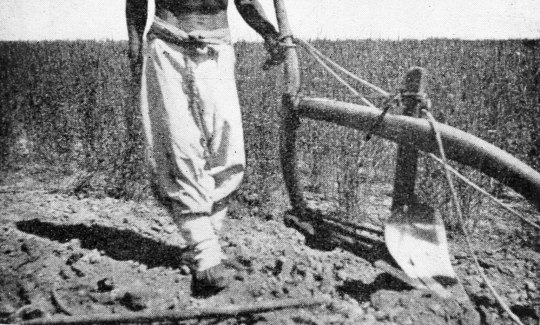
(Shantung plow, from King, 1911, Farmers of forty centuries)
QMYS also refer to the lighter feng鋒 plough.

(Feng鋒, from Wang Zhen's Nongshu)
The QMYS is the oldest Chinese text to refer to the iron-tined harrow, which it refer to as loucou𨫒楱

(Ba耙, from Wang Zhen's Nongshu)
The lao勞 bush-harrow was made by weaving thin sticks around the cross-bars.
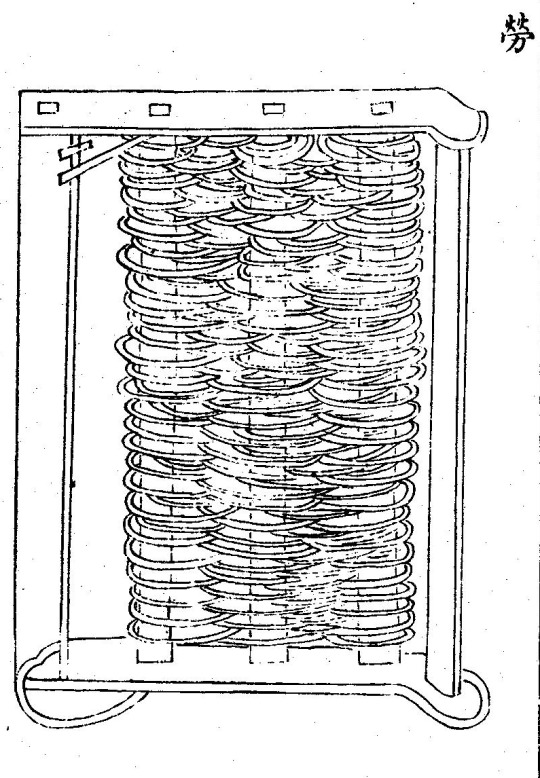
(Lao勞, from Wang Zhen's Nongshu)
The preferred tool for sowing was the seed drill, lou耬
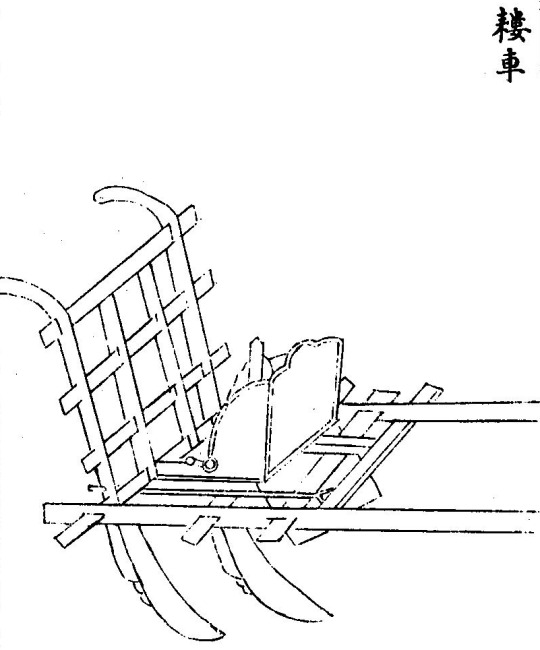
(Louche耬車, from Wang Zhen's Nongshu)
In addition to these ox-drawn tools, there were of course a varity of manual tools in different shapes and sizes, hoes, shovels, etc.
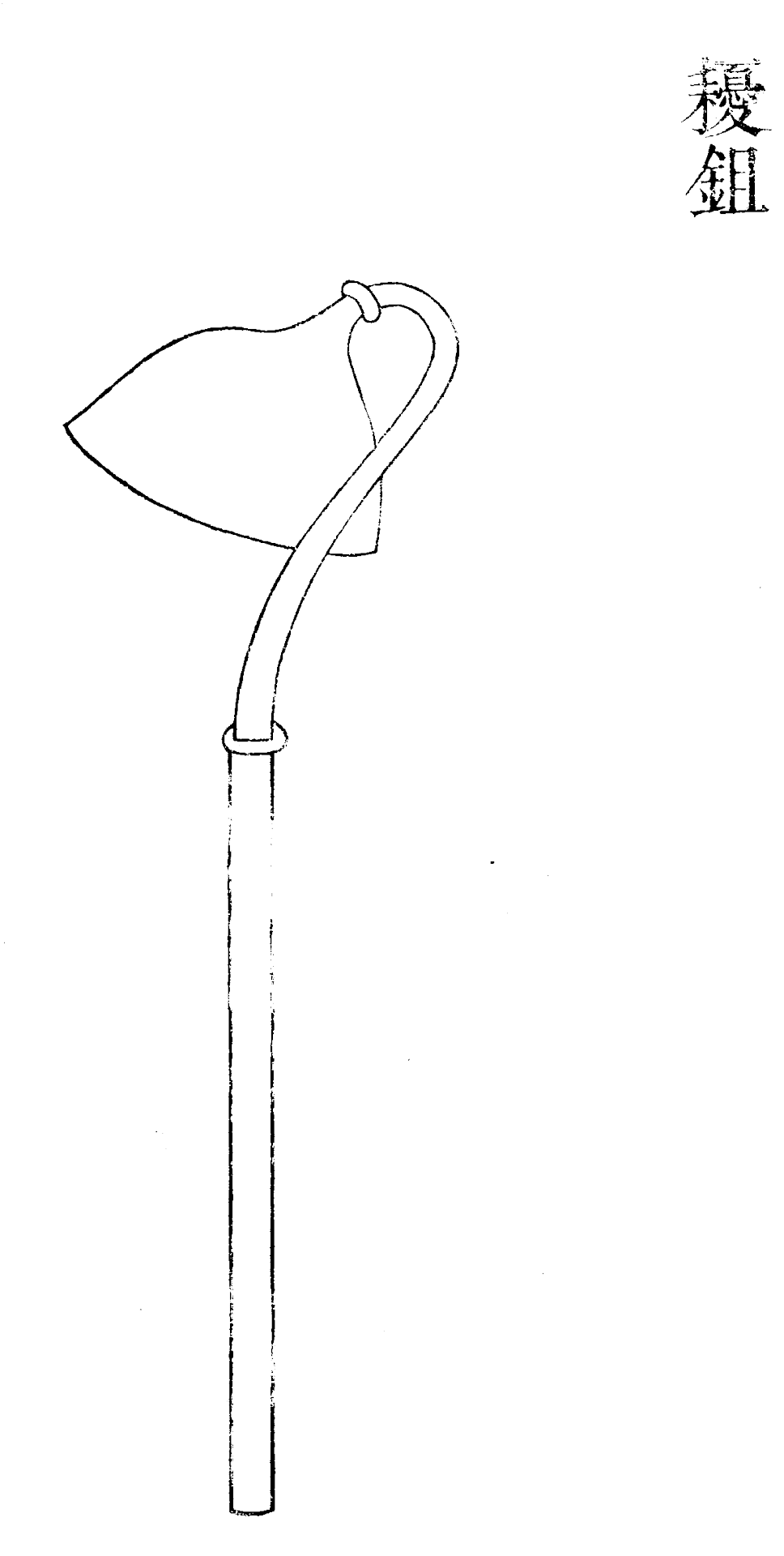
(Youchu耰鋤, from Wang Zhen's Nongshu)
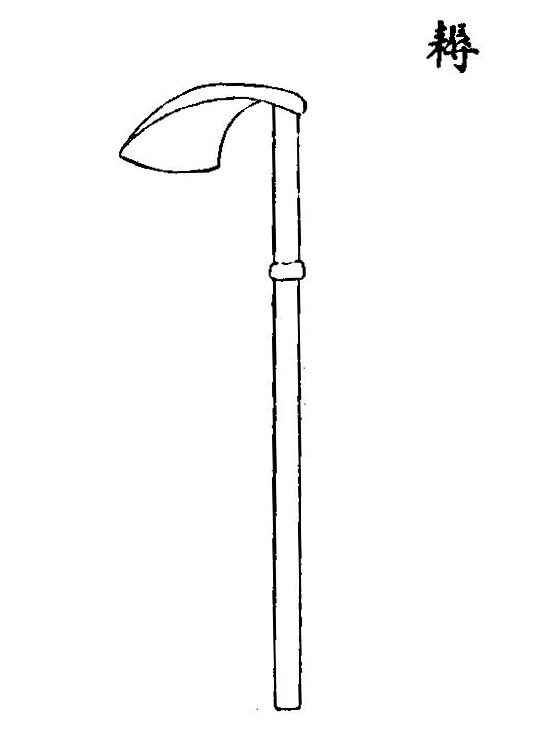
(Nou耨, from Wang Zhen's Nongshu)
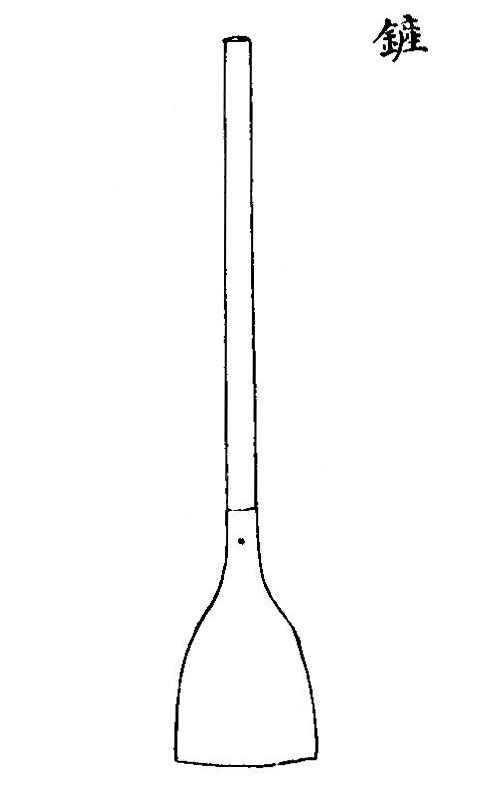
(Chan鏟, from Wang Zhen's Nongshu)
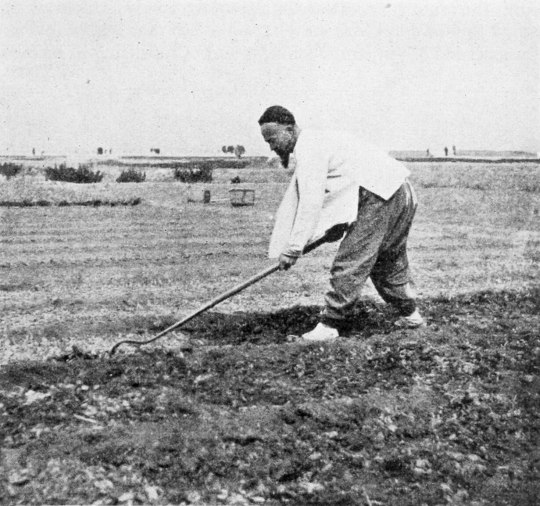
(Method of using the broad, heavy hoe in producing surface mulch, as seen in Shantung, China, from King, 1911, Farmers of forty centuries)
[Crop plants]
Later sections of QMYS treats the cultivation of the individual crops in much larger detail.
Foxtail millet (Setaria italica), gu穀, was the main staple crop.

Broomcorn millet (Panicum miliaceum), shu黍
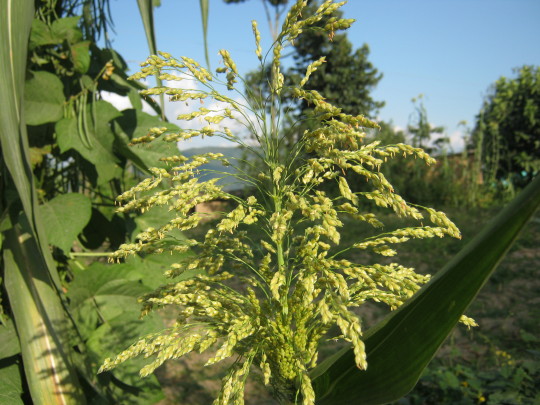
In addition to gu and shu, different varieties of foxtail and broomcorn millet were known under a large number of other names.
Mung beans or green gram (Vigna radiata), lüdou緑豆 (lit. "green beans"), used as green manure in crop rotation with millet

Adzuki beans (Vigna angularis), xiaodou小豆 (lit. "small beans") served a similar function
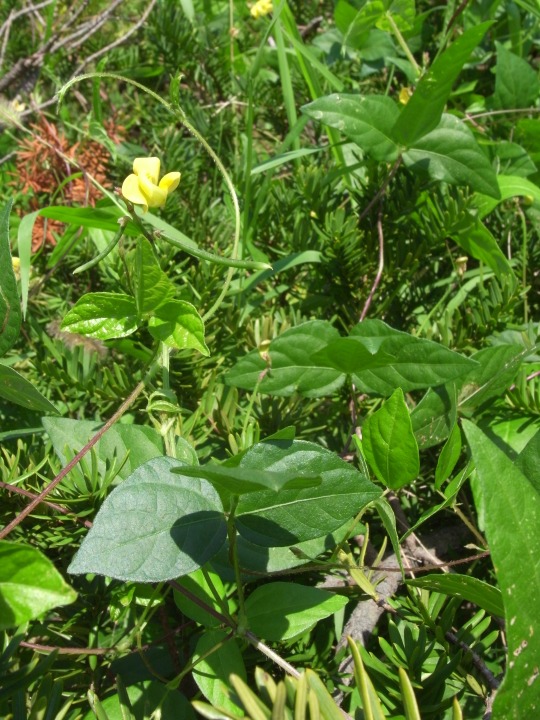
Wheat (Triticum aestivum), mai麥 (same name also used for barley) was primarily a winter crop in ancient China.

[Books quoted by QMYS in Section 1, in order of appearance]
The Zhoushu周書 (“Book of Zhou”), also known as the Yi Zhoushu逸周書, is a Warring States era collection of documents about Western Zhou, but the book has a complicated textual history. It is quoted once in QMYS, in Section 1. The quoted text is not found in the transmitted version.
The Shiben世本 (“Generational Roots”) records the genealogies of mythical rulers, the origin of the clan names, and mythological and historical inventors. Several versions existed, by different authors. The full text now lost, but it is quoted numerous times in other works. It is quoted once in QMYS, in Section 1.
The Lüshi chunqiu呂氏春秋 (“Spring and Autumn of Mister Lü”) is a collection of treatises and essays attributed to the retainers of Lü Buwei, the (in)famous Qin chancellor. It covers a very wide range of topics.
The Erya爾雅 (“Approaching the Correct”) is the oldest surviving Chinese glossary. Modern scholarship dates the book to the late Warring States and/or early Western Han periods. It is quoted numerous times in QMYS.
The Jianwei shiren犍為舍人, the “Retainer from Jianwei”, lived during the reign of Emperor Wu of Han and wrote a commentary on the Erya. The book is now lost. The quote in Section 1 is the first of three in QMYS.
The Zuanwen 纂文 (“Compiled Graphs”) by the Liu-Song scholar and historian He Chengtian何承天 (370 – 447) is now lost. It is quoted once in QMYS, in Section 1.
The Shuowen 說文 (“Explaining Graphs”) by Xu Shen許慎 (c. 58 – c. 147) analyses the composition and reasoning behind the different characters. It is quoted numerous times in QMYS.
The Shiming釋名 (“Analysing Names”) by Liu Xi劉熙 is a glossary in the style of the Erya written c. 200 AD. The quote in Section 1 is the first of three in QMYS.
The Liji 禮記 (“Ritual Records”) is a collection of ritual treatises compiled from older texts during Former Han, it became part of the textual canon as one the Five Classics and also as one the Three Ritual Classics. Its usage in QMYS is restricted to the Yueling chapter.
The Yueling月令 (“Monthly Orders”) chapter of the Liji is a calendrical treatise describing for each of the twelve months the position of the stars and other seasonal markers, important state rituals, and which activities should be undertaken in each month. Its inclusion in the Liji ensured it what read by every person aspiring to an education and it inspired a whole genre of similar texts, such as the Simin yueling. It is extensively quoted in QMYS.
Zheng Xuan鄭玄(127 – 200) was a famous scholar at the end of Han who wrote an influential commentary on the Three Ritual Classics. In QMYS quotations from the Yueling and Zhouguan are usually accompanied by quotes from his annotations.
Mengzi孟子 (“Master Meng”, theLatin Mencius) collects the teachings of the famous Warring States era philosopher Meng Ke (372–289 BC). The quote in Section 1 is the first of three in QMYS.
Wei Wen-hou魏文侯, Marquis Wen of Wei, ruled Wei during the early Warring States era. The single quote in QMYS attributed to him is found in the Huainanzi.
The Book of Miscellanea on Yin and Yang雜陰陽書 was apparently written during the early Han, but is now lost outside the quotations in the QMYS. The quote in Section 1 is the first of eight in QMYS.
Gao You高誘 lived at the end of Han and wrote commentaries on several texts, including the Lüshi chunqiu and the Huainanzi. The quote in Section 1 is the first of eight in QMYS.
The Huainanzi淮南子 (“Masters of Huainan”) is a collection of philosophical treaties compiled during Western Han at the court of Liu An (179 – 122 BC), vassal king of Huainan. It covers a wide range of topics. The quote in Part 9 is the second of nine in QMYS, the first being in the preface (which I have impudently skipped).
The Fan Shengzhi shu氾勝之書 (“Book of Fan Shengzhi”) is the oldest known Chinese agricultural treatise. Fan Shengzhi might originally have been an easterner, but during the early Western Han served as an official in the Guanzhong region. The original book has been lost, but it is extensively quoted in the QMYS, and also by Tang and Song encyclopedias.
Cui Shi崔寔 (d. c. 170) was a Han official and author of multiple works, including the Simin yueling and Zhenglun.
The Simin yueling 四民月令 (“Monthly Orders for the Four People”) is written in the style of the Liji Yueling, detailing each month's agricultural activities at the large estates of late Han North China. The original book is lost except as fragments in other books. It is very extensively quoted in the QMYS.
The Zhenglun政論 (“Essay on Government”) criticizes what Cui Shi considered the decline in morals and lax administration of law in his time. The original book is lost except as fragments in other books. It is quoted once in QMYS, in Section 1.
[Lettered notes]
The original text is a mix of large and small characters. I have collected the small text sections together in idented lettered notes within {} brackets.]
[Translation starts here:]
Section 1, Tilling the Fields
[Dictionary definitions]
The Book of Zhou says: “In the time of the Divine Farmer, Heaven rained millet [su粟]. The Divine Farmer thereupon tilled and planted it. He created pottery, cast axes and hatchets, and made the plough-shaft and ploughshare [leisi耒耜], the long- [chu鉏] and short-handle hoe [nou耨], to clear the grass and thickets. Afterwards the Five Grains supported and helped, and the Hundred Fruits were stored in abundance.”
The Generational Rootssays: “Chui created the plough-shaft and ploughshare. Chui was a vassal of the Divine Farmer.”
The Spring and Autumn of Mister Lüsays: “The ploughshare is six cun wide.”
The Eryasays: “To mow[qu斪] or weed[zhu斸] are spoken of as to settle [ding定].”
The Retainer from Jianwei says: “To mow or weed is to hoe [chu鋤]. They are names for settling.”
The Compiled Graphssays: “In the way of tending sprouts, the long-handle hoe [chu鋤] is not as good as the short-handle hoe [nou耨], the short-handle hoe is not as good as shovel [chan鏟]. A shovel is two chi long, with a blade two cun wide, and is used to level the ground and remove grass.”
Xu Shen's Explaining Graphssays: “The plough-shaft [lei耒] is for hand-tilling with a curved wood. The plough-share [si 耜] is the plough-shaft's straight end. The weeder [zhu斸] is for cleaving [zhuo斫]. In Qi they speak of it as the ziji鎡基. Some say the axe handle [jinbing斤柄] is curved by nature. A field [tian 田] is laid out [chen陳]. Where is planted grain is called a field. [The graph] resemble four 口, and the 十 is the pattern of paths and cross-paths. To till [geng耕] is to plough [li犂]. [the graph] comes from “plough-shaft” 耒 with the “well” [jing井] sound. Some say it is the ancients' well field [system.]”
Liu Xi's Analysing Names say: “A field [tian田] is full [tian填]. The five grains fill up within it. A plough [li犂] is profit [li利]. To profit, turn over the soil and cut off the grass at the root. The short-handle hoe [nou耨] resembles hoeing [chu鉏], with crouched back hoe among the stalks. To weed out [zhu] is to execute [zhu誅] someone. The ruler uses execution to dig up a matter at the root.”
[General advise]
In general, when opening uncultivated mountain and marsh fields, always in the 7th Month cut down and mow them. When the grass has dried, set fire to it. Arriving at spring, begin to clear out those of its groves where the wood is large, peel off the bark to kill them. When the leaves are dead and not casting shadow, they will readily yield to tilling and planting. After three years, when the roots have withered and the stalks decayed, use fire to burn them (entering the ground fully), till the uncultivated land to the end, and use an iron teeth loucou𨫒楱 harrow to rake it twice everywhere, hurl broomcorn non-glutinous millet, and bush-harrow [lao勞] it again twice everywhere. Next year then it is fitting to be a millet field.
In general when tilling eminent or inferior fields, do not ask about spring or autumn, [you] must pay attention to dry or wet to obtain what will be good. If flood and drought are not in concert, it is better with dry and not wet {A}. For the spring tilling, immediately take in hand the harrowing{B}. For the autumn tilling, wait for the turn to white to harrow{C}. [When the soil starts to dry, the surface turns white, which Jia Sixie refers to as 白背.]
{A: With dry tilling, then even if there are earth-clods, as soon as there is rain, the earth will pulverize and dissolve. With wet tilling, it will harden when it dries, and for several years will not be good. The proverb which says: “Wet tilling and damp hoeing is not as good as going home.” tells that it is of no gain and will be damaging. In the case of wet tilling, when it turns white quickly use the loucou on it, and there will likewise be no injury. If not done, it will be very bad.}
{B: The ancients said you耰, now we say lao勞. The Explaining Graphs says: “The you is a tool for rubbing [mo摩] the fields.” Now people also name the lao bush-harrow a “rubber” [mo]. A vulgar saying is “till the field with the rubbing harrow”.}
{C: During spring, there is much wind, and if [you] do not soon harrow, the earth will surely be empty and dry. During autumn the fields are soaked solid, and wet harrowing will make the earth stiff. The proverb which says: “To till and not to harrow is not as good as making it go to waste” perhaps tells that wetlands are difficult to handle, and delights in Heaven's timely chances. Huan Kuan's essay on Salt and Iron says: “Underneath a thick grove there is no lush grass. Between large clods there are no excellent sprouts.”}
In general, autumn tilling want to be deep, spring and summer tilling want to be shallow. Ploughing want to be narrow, harrowing want to be double{D}. In the autumn to till and cover over what is green is the best.{E} The earliest tilling want to be deep, and the turned over earth want to be shallow.{F} On land with themeda or cogon-grass [jianmao菅茅], [you] ought to let loose cattle and sheep to trample it. Then if in the 7th Month [you] till it, it will die{G}.
{D: Plough narrow and till finely, the ox then will not tire. Double-harrow and the land will ripen, during drought it will likewise protect the moisture.}
{E: Reaching the winter months, the green grass that has regrown will be as excellent as adzuki beans [xiaodou小豆].}
{F: If the tilling is not deep, the land will not ripen. If the turned over is not shallow, the stirring will bring forth the soil.}
{G: If not the 7th Month, it will regrow.}
In general, the rule for excellent fields, is for mung beans [lüdou緑豆] to be first, adzuki beans and sesame [huma胡麻] is next to it. Thoroughly for all of them sow densly [?] within the 5th and 6th Months, and in the 7th and 8th Month plough and cover over to kill them. [This] will make a spring millet field with a harvest of ten shi on the mu, in excellence comparable to silkworm excrement and mature manure.
In general, after the autumn harvest, the oxen's strength will be weak. For those not yet caught up for autumn tilling, at the bringing down of [?] the foxtail [ gu穀], glutinous broomcorn [shu黍], non-glutinous broomcorn [ji穄], large grained [liang 粱], and glutinous foxtrail [shu秫]millets' stubble, then move the exhausted ones to quickly use the “spear-point plough” [feng鋒] on it. The ground is regularly soft and moist, and is not hard and tough. Then when arriving at the beginning of winter, [you] usually get to till and harrow, and not worry about it being dried up and arid. If the oxen's strength is small, only harrow it once during the 9th and 10th Months, and arriving at spring, sow without ploughing [?], is also doable.
[Excerpts from the Monthly Orders on tilling]
[This whole subsection consists of quotation from the classic text the Monthly Orders [Yueling 月令], a chapter of the Ritual Records [Liji禮記], accompanied by quotations from commentary by the Eastern Han scholar Zheng Xuan.]
The Ritual Records' Monthly Orderssays: “In the Month of First Spring, … the Son of Heaven therefore on the inaugural day pray for grain to the High God [shangdi上帝]{H}. Then, selecting the inaugural chen day, the Son of Heaven personally conveys the plough-shaft and ploughshare. … He leads the Three Excellencies, the Nine Dignitaries, the various feudal lords, and the great men, to till themselves the God's Acre [Di ji帝籍]{I}. This Month, Heaven's breath descends down and Earth's breath rises up. Heaven and Earth are in harmony with each other, and the grasses and trees sprout and stir{J}. … He instructs the ministers for the fields{K}. They skilfully assess the hills and mounds, the slopes and defiles the highlands and lowlands, for what is suitable among the land and ground, and what to plant of the Five Grains, so as to teach and guide the people. … Field affairs having been put in order, he first settles the guidelines and responsibilities. Agriculture was therefore not in confusion. ...”
{H: Zheng Xuan's Annotations says: “It speaks of the first xin day, and the suburban sacrifices to Heaven. The Spring and Autumn Transmittals says: 'In spring the suburban sacrifices to the Lord of Agriculture [Houji后稷] to pray for farming affairs. Thus after the commencement of hibernation, the suburban sacrifices. After the suburban sacrifices, the tilling.' The High God is the god of the Grand Tenuity [taiyi太微].”}
{I: “Inaugural chen is perhaps a propitious chen day after the suburban sacrifices. … The God's Acre is the field by which is regulated the Heavenly Divinity's lending the people strength.”}
{J: “This is the yang breath ascending through the surface, a portent that there can be tilling. The Book of Agriculture says: 'For the best growth cover over the stakes. When they show the base and can be pulled out, those who till urgently set out.”}
[This Book of Agriculture [nongshu農書] is apparently the same as the Book of Fan Shengzhi which is quoted in more detail on this topic further down.]
{K: “With minister it speaks of the 'field surveyors', the officials in charge of agriculture.”}
“In the Month of Middle Spring, … those who till have a short rest, they then repair their gate and door leaves [heshan闔扇]{L}. There are no great affairs undertaken which would hinder agricultural affairs. … ”
{L: 'Rest' [she舍] is similar to 'pause' [shi止]. Hibernating insects open doors, and with tilling affairs a little tranquil, they then put in order their gates and doors. When they use wood it is called he闔, when they use bamboo or reeds it is called shan扇.”}
“In the Month of First Summer, … he encourages agriculture and motivates the people, and there are not anyone who neglects the season{M}. … He instructs the farmers to apply themselves to action, and not rest at the capital{N}. ...”
{M: “He puts weight and effort in encouraging [them?] to come to him.”}
{N: “He presses and urges the farmers. … The Rites for the King Residing in the Bright Hall says: 'There are no sojourners in the state'.”
“In the Month of Last Autumn, … The hibernating insects altogether curl up inside, and everyone plaster their doors.{O}”
{O: “With 'plastering' [jin墐] it speaks of smearing plaster [tu塗] to shut them. This is to avoid the killing[?] air.”}
“In the Month of First Winter, … Heaven's breath rises up and Earth's breath descends down. Heaven and Earth do not communicate, they shut up and hide, and achieve winter. … He encourages the farmers to rest and comforts them{P}. …”
{P: “'The Ward Corrector [dangzheng黨正]' 'drinks wine with the people belonging to him, and correctly arrays their ranks.'”} [Zheng Xuan here quotes from the Rites of Zhou]
“In the Month of Middle Winter, … ground affairs are not undertaken, care is taken not to open up what is covered, and not to open rooms and buildings. … [otherwise] the Earth's breath would further spill out, this is spoken of as opening the house of Heaven and Earth. The various hibernating [insects] would then die, and the people would be ill and sick{Q}. …”
{Q: “When the Great Yin employed in affairs, it especially puts weight on closing up and keeping safe.” Note that in the present era's tilling in the 10th and 11th Months is not straightly disobeying the Way of Heaven, and harming hibernating insects. [If] the earth likewise was not made moist, the harvest would surely be meagre and small.}
[The words “Note … small” are not part of Zheng Xuan's commentary, but are rather Jia Sixie's own comments.]
“In the Month of Last Winter, … he instructs the field officials to announce people to bring out the Five Seeds{R}. He instructs the farmers to plan their plough-pairs and tilling affairs, repair their plough-shafts and -shares, and prepare their field tools{S}. … This month, the sun has gone through the stations, the moon has gone through the positions, and the stars have cycled around Heaven. The numbering is soon about to end{T}. The year will once more begin. Pay attention to your farming people, and do not have them sent about{U}.”
{R: “He instructs the field officials to announce to the people to bring out the Five Seeds. The great cold has passed by, and farming affairs are about to begin.”}
{S: The ploughshare [si耜] is the metal of the plough-shaft [lei耒]. The ploughshare is five cun wide. Field tools are the types of hoes [ziji鎡錤].”
{T: “It tells that the sun, moon, and stars have travelled around until this month, when they all have made a circuit to their old locations. The 'stations' [si次] are the lodges [she舍]. The 'positions' [ji紀] are similar to lodges.”}
{U: “er而 [“thy”] is similar to ru汝 [“you” or “your”]. It tells to pay attention solely to the hearts of your farming people, and make people prepare their resolve for the affairs of tilling and sowing. It is not possible to conscript them for labour. If conscripted for labour, their resolve will scatter, and they will neglect their profession.”}
[Other quotations on tilling]
Master Meng says: “A gentleman's assignment is like a farmer's tilling.”{V}
{V: Zhao Zhu's annotations says: “It tells that to be hasty in your assignment, like a farmer who does not till, is impossible.”}
Marquis Wen of Wei says: “People in spring put their effort into tilling, in summer use their strength for weeding, and in autumn they gather their harvest.”
The Book of Miscellanea on Yin and Yang says: “When on hai亥 it is in the Heavenly Granary constellation, it is the start of tilling.”
The Spring and Autumn of Mister Lü says: Fifty-seven days after winter solstice, sweet flag [chang昌] grows. Sweet flag is the first to grow of the hundred hundred grasses, and at this point tilling starts.
The Masters of Huainan says: That which does the affairs of tilling is toil, that which does the affairs of weaving is trouble [?]. They are affairs of toil and trouble, yet those people who do not rest know they can be used for clothes and food. A person's feelings are not capable of being without clothes or food. The way of clothes and food surely starts at tilling and weaving. … Those who, if they till and weave, who will start at the beginning with considerable toil, and end with certain profit, are the multitudes.
It also says: “To be unable to till and yet want glutinous broomcorn or large grained millet, to be unable to weave and yet want to sew attires, to have nothing in their affairs and yet seeking their merit, is difficult.”
[Quotations from Fan Shengzhi]
The Book of Fan Shengzhisays: “In general, the root of tilling lies in determined timeliness, harmony with the ground, applying oneself to manure and moisture, and to hoe early and harvest early.”
“At spring when the frost disperse, Earth's breath starts to permeate, and the soil's sole harmony disperse. At the summer solstice, Heaven's breath starts to heat, the yin breath starts to flourish, and the soil again disperse. Ninety days after summer solstice, when day and night are split, Heaven and Earth's breath are in harmony. Using these times to till the fields, one will yield five, which is called fertile bounty, all then are times for work.”
“At spring when the Earth's breath permeates, [you] can till the hard and tough earth with black, lumpy soil, immediately level and rub down its clods to give growth to grass. When the grass grows, again till it. When the sky has a little rain again till and harmonize it. Do not make that which has clods await the season. This spoken of as 'if strong soil, then weaken it'.”
“A spring portent that the Earth's breath has started to permeate: Hammer down wooden stakes, a chi and two cun long, cover over a chi [so that you] see two cun. After the advent of spring [lichun立春], the soil clods will break up, and the top will slide down the stakes. When they show the base, and can be pulled out, after twenty days from this time, the harmonious breath will leave, and promptly the soil will stiffen. With timely tilling, one will yield four; till when the harmonious breath has left and four will not yield one.”
“When the apricots start to flower and flourish, immediately till light soil and weak soil. Wait for the apricot flowers to fall off, and then till again. Till and immediately roll it [lin藺]. When grass grows, and there is rain and moisture, till and heavily roll it. For soil that is particularly light, use cattle and sheep to trample it. Like this the soil will strengthen. This is what spoken of as 'if weak soil, strengthen it'.”
“If at the spring breath is not permeated, soil fully fitting will not protect its moisture, and for the remainder of the year will not be suitable for sowing, and no manure will not dissolve [?]. Take care to not till dry land. Wait for grass to grow, and to arrive the time it can be tilled. When there is rain, promptly till it, The soil will be close with each other, sprouts only will grow, grass and weed will rot, and [you] will always achieve good fields. This way one tilling will yield five. If not done like this, but dry tilled, clods will be tough, sprouts and weed will spring forth from the same hole and will be impossible to hoe into order, and and it will turn around to become failed fields. If in autumn with no rain [you] yet till, it will sever the soil's breath, and soil will be hard and dry. These are called 'arid fields' [latian臘田]. And when you till in severe winter, [you] will leak out the yin breath, the soil will wither and dry out. These are called 'parched fields' [futian 脯田]. Arid fields and parched fields are both wounded fields. If for two years they do not produce sheaves of grain, then rest them for a year.”
“In general wheat [mai麥] uses the 5th Month for tilling. The 6th Month is second for tilling, and in the 7th Month [you] must not till. Carefully rub and level to await the time for sowing seeds. Till in the 5th Month, one will yield three. Till in the 6th Month, one will yield two. If tilled in the 7th Month, five will not yield one.”
“In winter when the rain and snow has stopped, immediately roll it down. Trap the snow in the soil, and do not cause the following wind to fly away with it. If it snows later, roll it down again. Then at the advent of spring, it will protect the moisture, freeze the insects to death, and the coming year will be suitable for sowing.”
“Obtain the harmony of the season and fit to what is suitable for the land, then even if the fields are meagre and bad, the harvest can be 10 shi on a mu.”
[Quotations from Cui Shi]
Cui Shi's Monthly Orders for the Four Peoplesays: “1st Month, Earth's breath rises up. For the best growth cover over the stakes. When they show the base and can be pulled out. Hasten to cultivate fields with strong soil and black lumps. 2nd Month, Yin's frost is entirely moist. It is possible to cultivate excellent fields with slow soil and the small places by the river banks. 3rd Month, when apricot flowers are abundant, it is possible to cultivate fields with sandy, white, and light soils. 5th Month and 6th Month is is possible to cultivate wheat fields.”
Cui Shi's Essay on Governmentsays: “Emperor Wu used Zhao Guo as Chief Commandant of Searching for Millet, to teach the people tilling and planting. In his method there was three ploughshares [li犂] together for one ox, with one person escorting it, putting down seeds, pulling the seed-drill [lou耬], and in everything taking up preparations for it. In a day he sowed 1 qing. Arriving at present Sanfu [the region around Chang'an], they still rely on its advantages. Now in Liaodong when they till and plough, the shafts are four chi long, the rotations interfering with each other. Then they use a pair of oxen, a pair of people to lead them, one person in charge of the tilling, one person to put down seeds, and two people pull the seed-drill; in total they use a pair of oxen and six people, and in one day they only sow twenty-five mu. They are isolated [?] in the extreme like this.{W}”
{W}Note for three ploughshares together for one ox is similar to the present three-footed seed-drill, why the unknown tilling method? Now from Jizhou濟州 and westward they still use the long-shafted plough and the two-legged seed-drill. Long-shaft tilling on level ground is just about possible, but between the mountains and brooks, [the ground] does not permit its use, moreover the rotations are extremely difficult and costly in strength. It is not the equal the flexible ease of Qi people's luxuriant[?] ploughs. The two-legged seed-drill sows dense ridges, and is likewise not as good for hitting the mark as the one-legged seed-drill. [This seems to be Jia Sixie's own comment to Cui Shi's text.]
8 notes
·
View notes